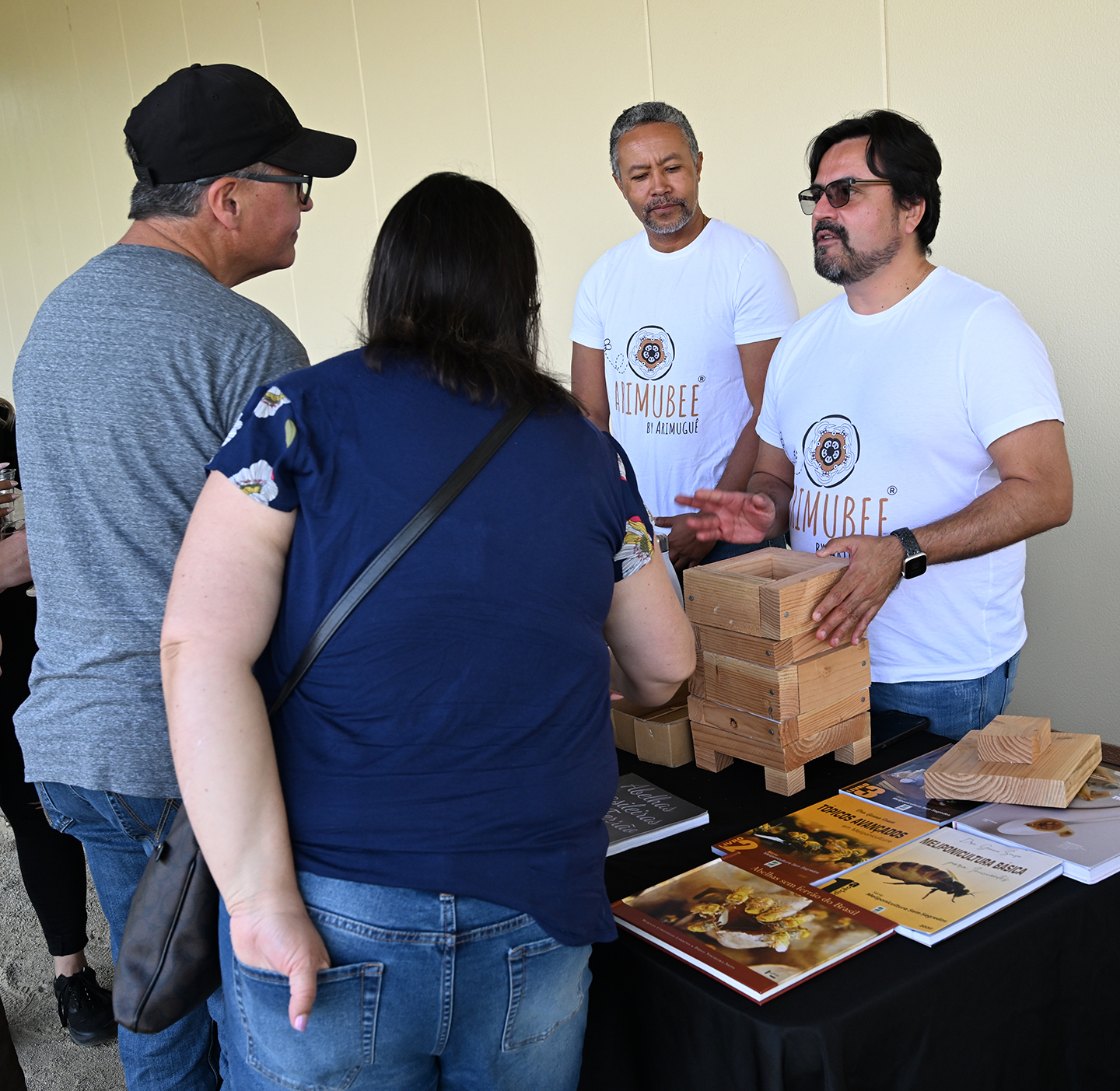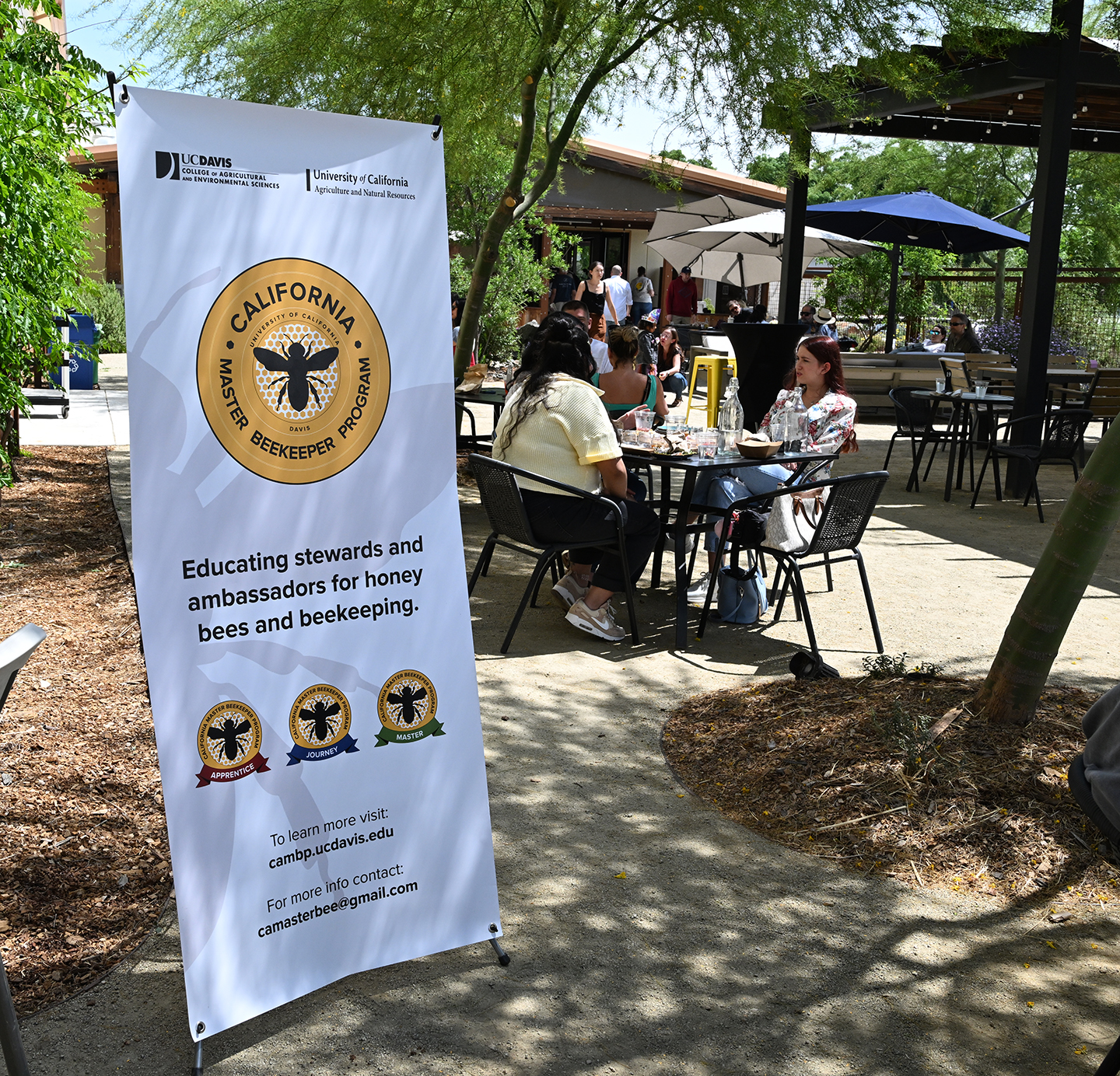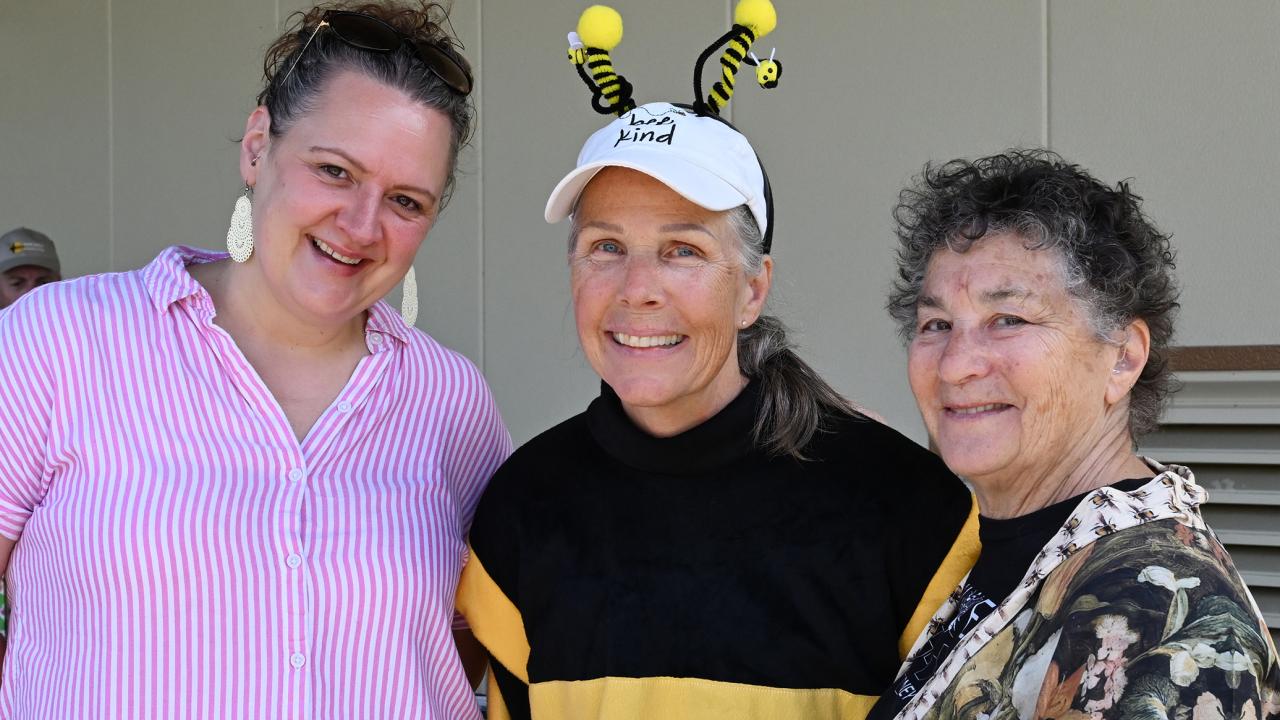
A Mini-Festival Celebrating Bees and Other Pollinators
UC Davis Participates in Celebration Hosted by The Hive, Woodland
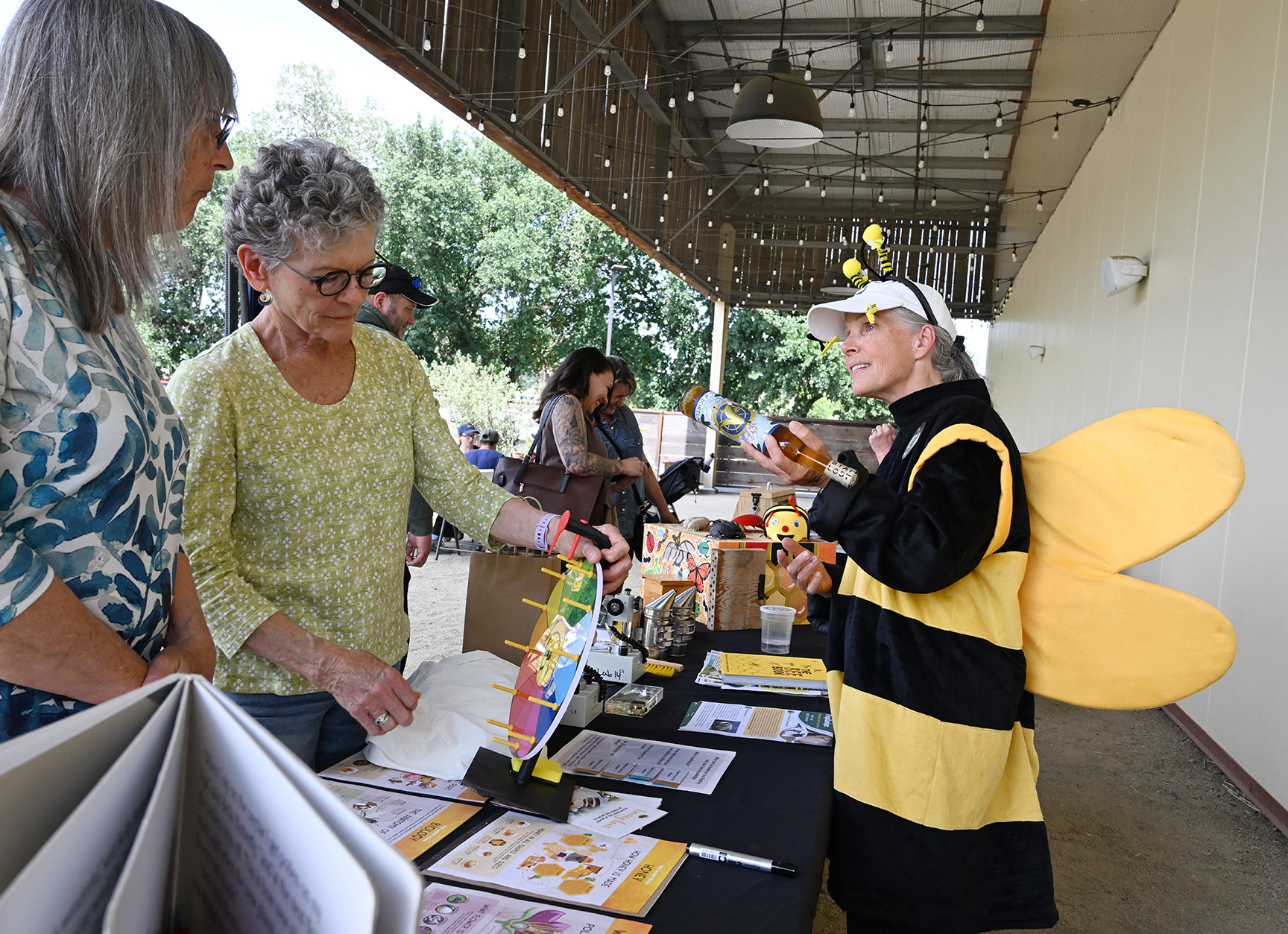
It focused on the bees.
And what an educational and entertaining experience it was for the some 600 to 650 people attending a mini-festival at The Hive, Woodland, on Saturday, May 3--the day that the 2025 California Honey Festival was planned, but "not to bee."
The California Honey Festival, co-founded in 2007 by Amina Harris, then executive director of the UC Davis Honey and Pollination Center, and the City of Woodland, annually draws some 50,000 people to downtown Woodland. It was initially scheduled May 3, but the threat of a major rainstorm derailed the event. It's been postponed until Saturday, June 21.
So, Harris and her family hosted a free and family friendly mini-festival celebration at their family business, Z Food Specialty, which encompasses The Hive.
The major rainstorm did not occur, but the educational and entertaining experiences at The Hive did.
The UC Davis-based California Master Beekeeper Program (CAMBP) and the UC Davis Arboretum and Public Garden's "Learning by Leading"--staffed with UC Davis student ambassadors--engaged the public with bee, pollinator and plant information in an event held from 11 a.m.to 5 p.m.
At the CAMBP activity tables, visitors viewed an observation hive, examined bees under the microscope to identify the three castes (queens, drones and workers), and discovered the threats that bees face, including varroa mites and hive beetles.
They learned about the "4 P’s"--pests, pathogens, pesticides and poor nutrition--that threaten bee health and survival. They asked questions about integrated pest management (IPM) strategies, and what to plant to attract bees and other pollinators. They were invited to enroll in the CAMBP to become a bee ambassador, and advance to the apprentice, journey and master levels of beekeeping.
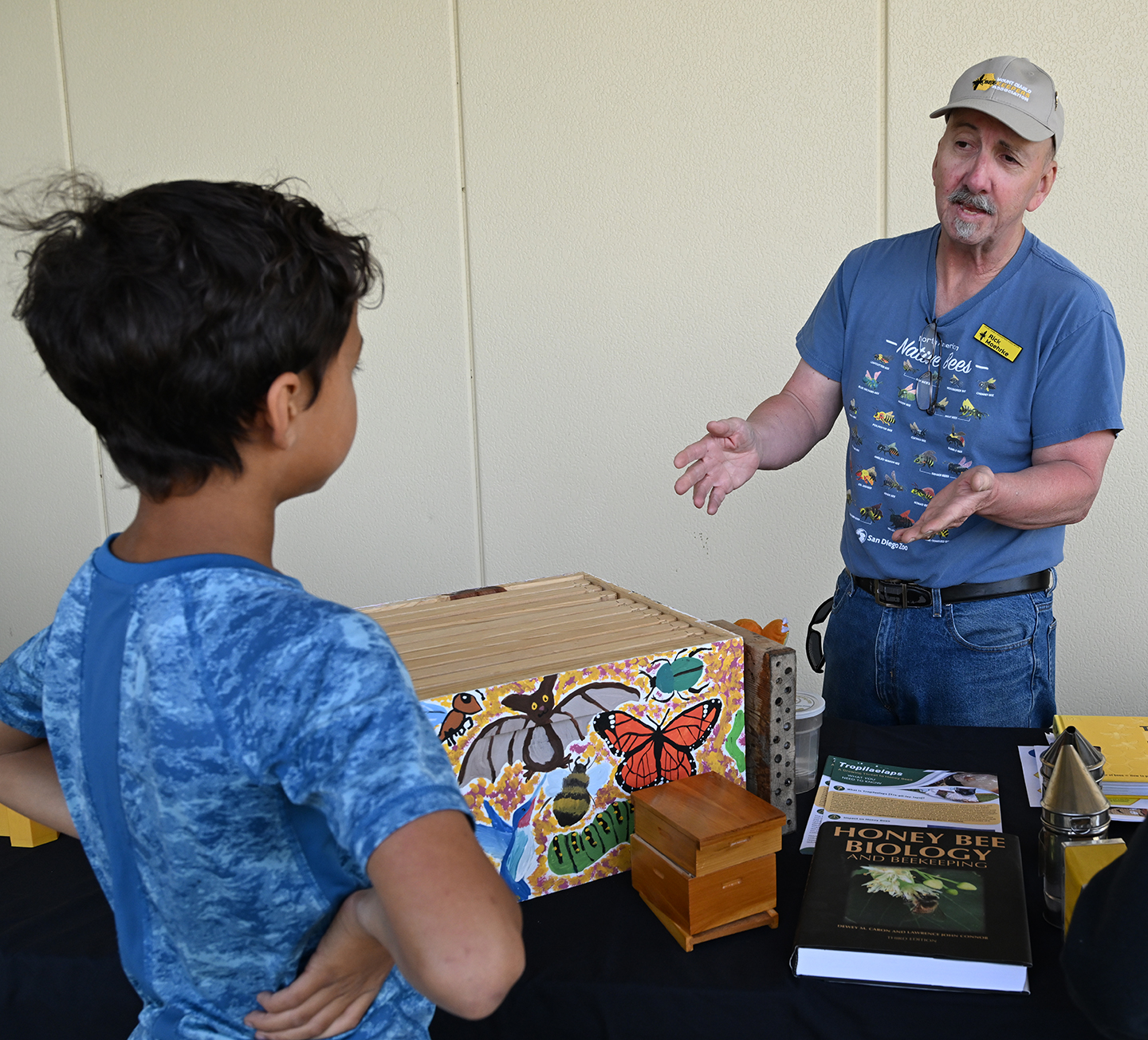
Among those fielding the CAMBP questions:
- Elina Lastro Niño, director of CAMBP and professor of Cooperative Extension, Apiculture, based in the UC Davis Department of Entomology and Nematology;
- Wendy Mather, co-program manager of CAMBP and costumed as Bettina the Bee;
- CAMBP member Rick Moehrke, a retired Vacaville teacher; and
- Stingless bee experts Jean-Philippe Marelli and Carlos Andre Santana of Arimubee of CAMBP, who also offered "a taste of honey" from the stingless bees.
At the "kid-friendly" table, crayons, paper plates, googly eyes, popsickle sticks, papier-mâché, pipe cleaners and other materials awaited.
Moehrke answered scores of questions as he staffed the bee observation hive. One pre-schooler asked him "What's the color of bee blood?"
"I've never been asked that before," Moehrke said.
Bee blood, or hemolymph, is typically clear in color because bees lack hemoglobin and red blood cells, which give vertebrate blood its red color.
"Young minds are limitless," Mather said, adding that "My experience was pretty crafty and all of the creators were thrilled we had supplies to play with. I was gifted with a few treasures, too." Six-year-old Atticus Roche of Davis created a pipe-cleaner bouquet for her.
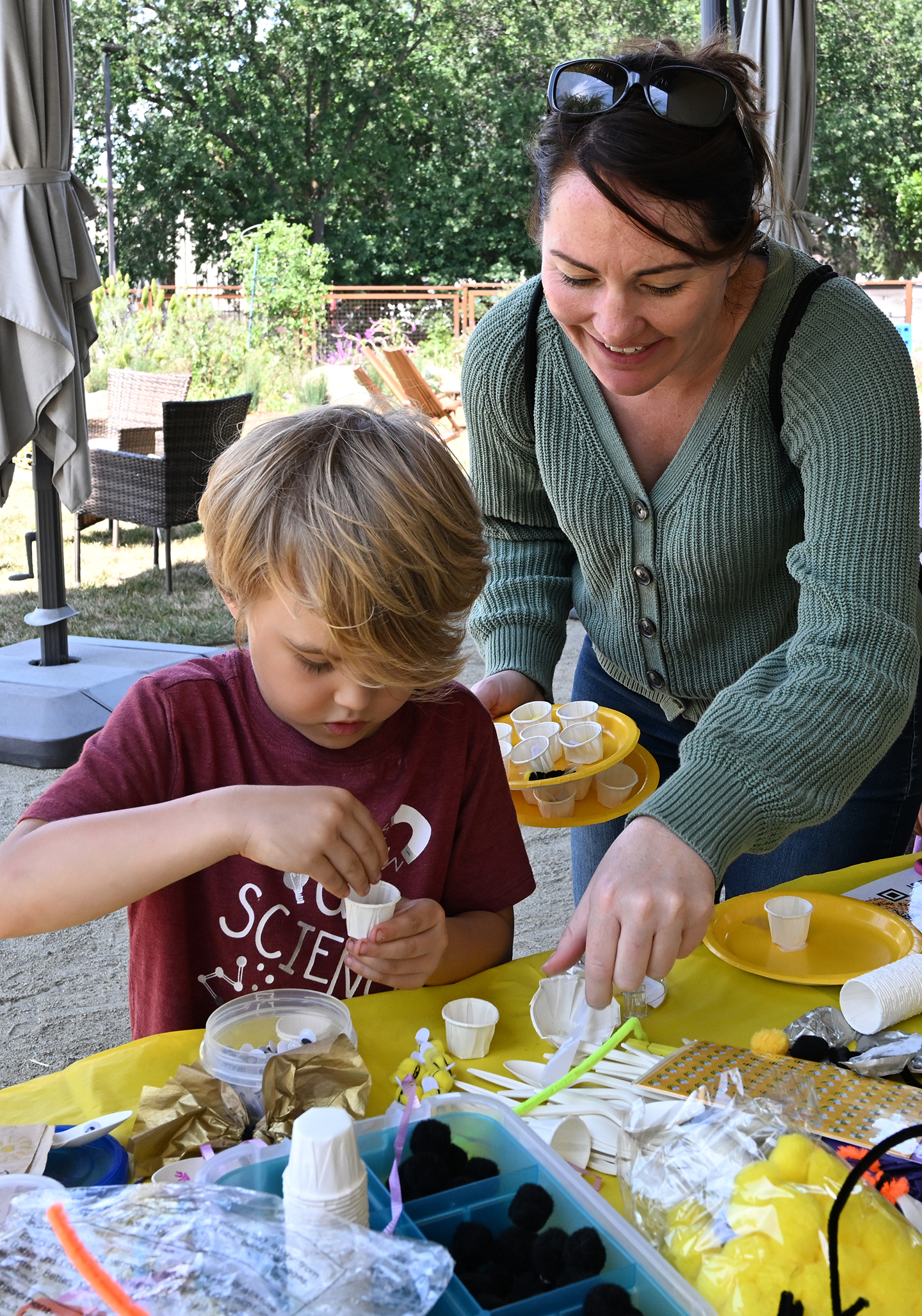
Mather, as Bettina the Bee, not only answered questions about bees and posed for pictures, but assisted the children in making seed cookies for pollinators. It's a CAMBP-Planet Bee Foundation partnering project.
CAMBP, founded by Niño in 2016, is a science-based, continuous train-the-trainer program. Its vision is "to certify Honey Bee Ambassador, Apprentice, Journey, and Master-level beekeepers so they can effectively communicate the importance of honey bees and other pollinators within their communities, serve as mentors for other beekeepers, and become the informational conduit between the beekeeping communities throughout the state and UC Cooperative Extension staff," according to its website. Mather and Kian Nikzad serve as co-program managers.
UC Davis Arboretum and Public Garden
The mini-festival also featured "Learning by Leading" as the student ambassadors, directed by Rachel Davis, GATEWAYS horticulturist with the UC Davis Arboretum and Public Garden. led hands-on learning activities for all ages. Attendees learned how to support habitat for bees, butterflies, and other garden guests. The ambassadors engaged them in "Design Your Own Pollination Garden," "Pick a Future Favorite Plant," “Meet Your Garden Neighbor" and “Pollinator Matching Game,” where visitors had to place a Sphinx moth, monarch butterfly, bumble bee and syrphid fly with the right plant. The plants included a soap plant (genus Chlorogalum), milkweed (genus Asclepias), California golden poppy (genus Eschscholzia) and yarrow (genus Achillea).
Visitors took home recipes for making their own potted plants for pollinators, and collected a “Climate Hero” badge.
Amina Harris praised the activities of the two groups as “outstanding.“
"The CAMBP folks did a really great repeat of Nature Day, just a month ago," she said. "The Arboretum's Learning by Leading group was new and fabulous."
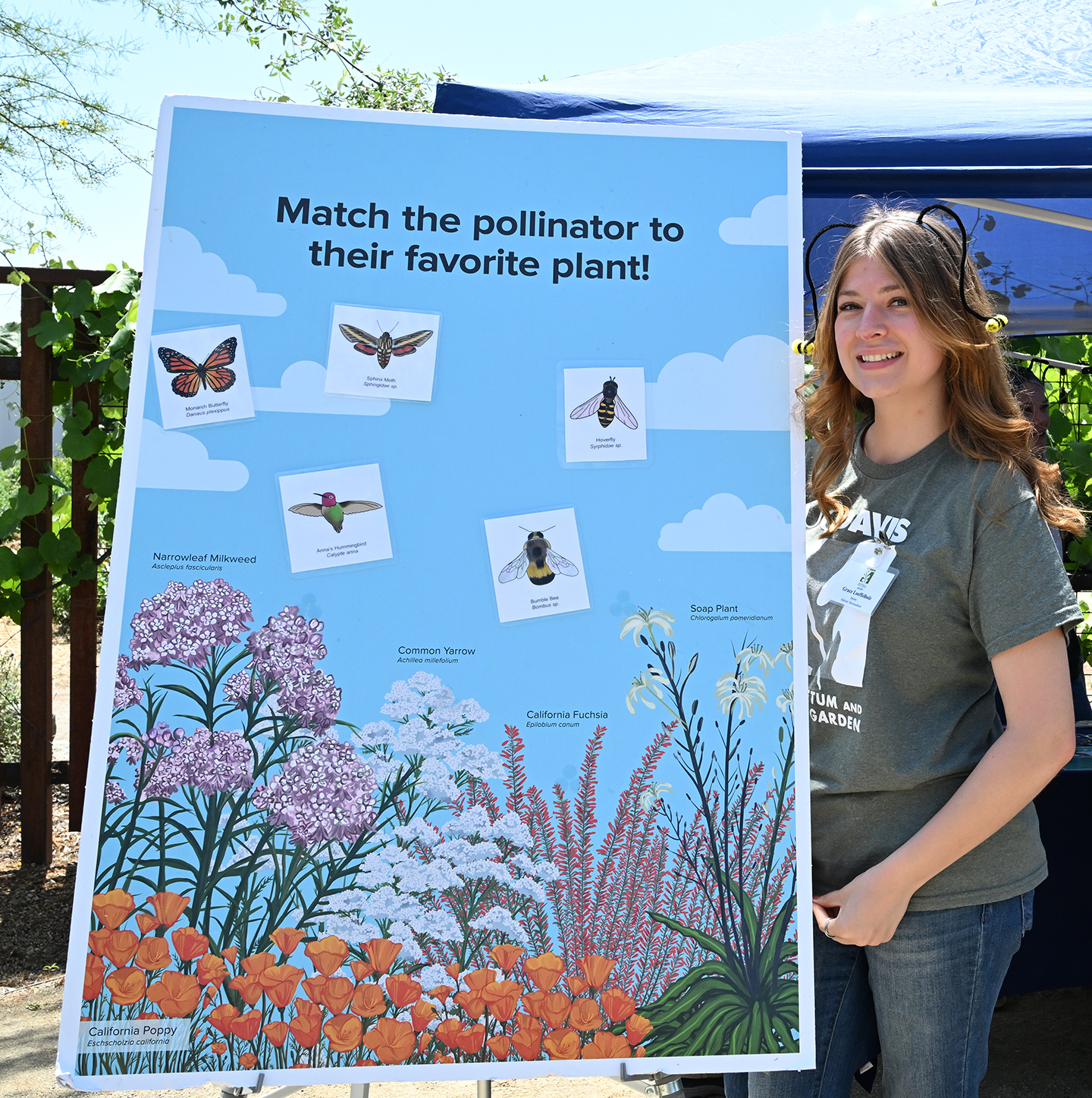
CAMBP will participate in the June 21 California Honey Festival, but not the Arboretum ambassadors, as spring UC Davis classes will have ended.
"The students loved tabling at The Hive," said team coordinater Rachel Davis. "They were so happy to be able to share their outreach material with such an inquisitive and curious audience. They were preparing for 30 seconds to one-minute conversations at the downtown location, but were happy to converse with visitors for much longer about Climate-Ready Gardening and the roles pollinators play in our local community."
"I think the Meet Your Garden Neighbor Quiz, where you take a personality test to match with local wildlife--with an emphasis on pollinators--was a hit. Student workers created stickers of wildlife and visitors read their wildlife profile and participants found out which plant they could add to their garden to support their match!"
"Visitors also got to build their own Climate-Ready Garden where they selected plants, irrigation, fun features, etc. to make a garden sustainable and beautiful," Davis said. "Visitors were excited to see Future Favorite plant lists that will soon contribute to our upcoming Arboretum All-Star relaunch in the Fall. These plants and other resources are available on our Climate-Ready Gardening Toolkit."
